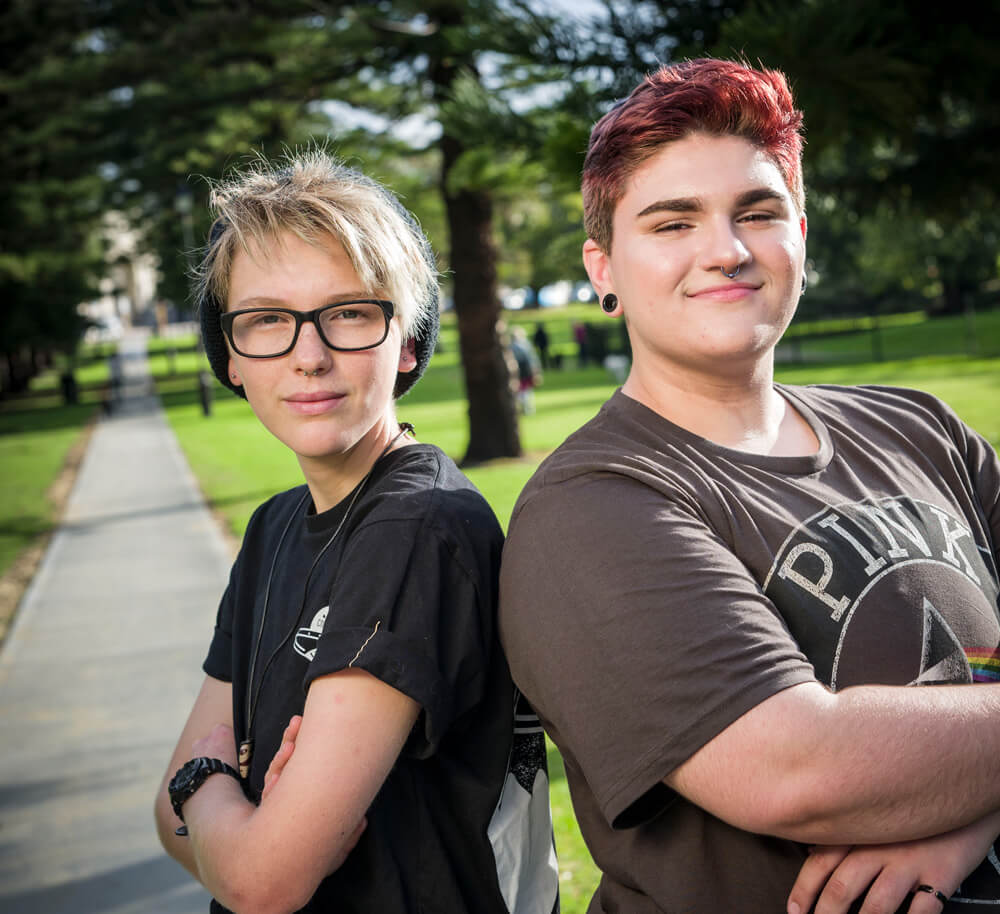Search

News & Events
Trans Pathways breaks down barriers for Trans YouthWhen Trans Pathways ambassador Drew, 17, came out as trans three years ago, the biggest hurdle for him was the availability of services and the time it took to access support.

News & Events
Young people suggest anti-smoking style interventions for energy drinksResearchers conducted a series of group interviews with young people to find out how much they knew about energy drinks and the consequences of drinking them.
Research
Safeguarding youth sexual and reproductive health and rights in the context of increasing climate-related disasters in the Pacific: A scoping review of policies and responsesPacific youth (15–24 years) experience multiple challenges to realising their sexual and reproductive health and rights (SRHR). Climate-related disasters compound pre-existing social and health inequities, including for youth SRHR. Meaningful youth engagement is crucial to understand their risks and inform inclusive disaster responses.
Research
Non-communicable disease mortality in young people with a history of contact with the youth justice system in Queensland, Australia: a retrospective, population-based cohort studyYoung people who have had contact with the criminal justice system are at increased risk of early death, especially from injuries. However, deaths due to non-communicable diseases (NCDs) in this population remain poorly described. We aimed to estimate mortality due to NCDs in people with a history of involvement with the youth justice system, compare NCD mortality rates in this population with those in the general population, and characterise demographic and justice-related factors associated with deaths caused by NCDs in people with a history of contact with the youth justice system.
Research
Within- and between-person relationships between spontaneous self-affirmations, coping style, and wellbeingSelf-affirmations—responding to self-threatening information by reflecting on positive values or strengths—help to realign working self-concept and may support adaptive coping and wellbeing. Little research has been undertaken on spontaneous self-affirmations in response to everyday threats, and less has been undertaken on the relationships between spontaneous self-affirmations, coping, and wellbeing.
Research
Intersex adolescents seeking help for their depression: the case study of SPARX in New ZealandSPARX is a computerized cognitive behavioral therapy self-help program for adolescent depression that is freely available in New Zealand. At registration, users identify themselves as either male, female, intersex, or transgender. We aimed to describe the mental health of adolescent intersex users. A secondary analysis of SPARX usage data over 5 years.
Research
Adiposity associated DNA methylation signatures in adolescents are related to leptin and perinatal factorsEpigenetics links perinatal influences with later obesity. We identifed differentially methylated CpG (dmCpG) loci measured at 17 years associated with concurrent adiposity measures and examined whether these were associated with hsCRP, adipokines, and early life environmental factors. Genome-wide DNA methylation from 1192 Raine Study participants at 17 years, identified 29 dmCpGs associated with body mass index, 10 with waist circumference and 9 with subcutaneous fat thickness.
Research
Developmental queer and trans actualizations: A clear pathway to promoting health and well-being for sexually and gender diverse youthMinority stress models and trauma-focused approaches have predominated our understanding and responses to health disparities among sexually and gender diverse (SGD) young people for more than 30 years. While the impacts and root causes of adversities are undoubtedly critical for promoting SGD health and well-being, it is important to highlight strengths-based narratives of the lives of SGD youth.
Research
Exploring healthcare providers’ perspectives on the factors that facilitate primary health care access among Aboriginal and Torres Strait Islander young peopleAboriginal and Torres Strait Islander young people aged 15-24 years of age often encounter challenges accessing and utilising primary health care (PHC). Providing health care responsive to the needs of Aboriginal and Torres Strait Islander young people requires the active involvement of healthcare providers (HCPs), who play a central role in healthcare delivery. This study explored perspectives of HCPs working in urban Aboriginal and Torres Strait Islander Community-Controlled Health Organisations (ATSICCHOs) on the factors that facilitate Aboriginal and Torres Strait young people accessing and utilising PHC services.
Research
Twenty-five is not a neurobiologically determined age of maturity for gender-affirming medical decision-makingAmong the increasing threats to the healthcare of transgender and gender-diverse people globally, are efforts to deny gender-affirming medical care to people under age 25 typically justified by stating that the human brain is not developed until the mid-to-late 20's. Thus, this line of reasoning states young adults are not sufficiently mature to be responsible for autonomous healthcare decision-making— at least in regard to gender-affirming care.
